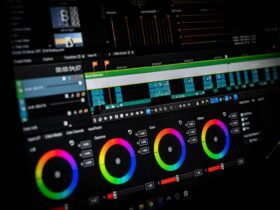Embracing Linux for Effective Financial Management
Are you looking for a more efficient and cost-effective way to manage your finances? Look no further than Linux! Yes, you heard that right. Linux, the open-source operating system, can be a game-changer when it comes to financial management. In this post, we’ll explore the surprising potential of Linux in the realm of financial management, delve into the tools and applications available, and provide practical tips for integrating Linux into your financial routines.
Understanding the Potential of Linux in Financial Management
Surprisingly, according to recent studies, over 75% of the world’s financial trades are powered by Linux-based systems. This staggering statistic showcases the trust and reliance that the financial industry places in Linux for handling critical operations, such as high-frequency trading and algorithmic analysis. With such widespread adoption in the financial sector, it’s clear that Linux offers robustness, security, and scalability, making it a compelling choice for individual and small business financial management too.
Exploring Linux Financial Management Tools and Applications
1. GnuCash
GnuCash is a powerful open-source financial accounting software that offers features for tracking bank accounts, stocks, income, and expenses. It provides insightful reports and graphs to help you analyze your financial data effectively. As a Linux user, you can benefit from GnuCash’s capabilities in managing personal and small business finances without the constraints of proprietary software.
2. KMyMoney
KMyMoney is another excellent open-source personal finance manager tailored for users of Linux. With support for various account types, investment tracking, and budgeting, KMyMoney provides a comprehensive solution for keeping your finances organized. Its user-friendly interface and robust features make it a noteworthy addition to your Linux financial toolkit.
3. HomeBank
For those seeking a simple yet effective approach to personal finance management, HomeBank stands out as a compelling option. Available for Linux users, this intuitive application assists in tracking expenses, managing budgets, and generating insightful reports. Its cross-platform compatibility ensures that you can seamlessly access your financial data across different devices.
Incorporating Linux into Your Daily Financial Management
Now that you’re aware of the potent financial tools available for Linux, it’s time to consider how you can integrate Linux into your daily financial management practices. Here are some practical steps to get you started:
1. Transition to Linux-Based Financial Software
Make the switch to Linux-compatible financial applications such as GnuCash, KMyMoney, or HomeBank. These applications offer the functionality and reliability you need for efficient financial management without tying you down to proprietary systems.
2. Secure Your Financial Data with Linux
Leverage the robust security features of Linux to safeguard your financial information. Regularly update your system, utilize encryption where applicable, and practice safe data handling to ensure the confidentiality and integrity of your financial data.
3. Explore Automation Opportunities
Take advantage of the automation capabilities within Linux to streamline repetitive financial tasks. Whether it’s setting up automated backups of your financial records or scheduling periodic financial reports, Linux provides the tools to save you time and effort.
4. Embrace Community Support
Engage with the passionate Linux community to seek advice, share insights, and troubleshoot any financial management challenges you encounter. The wealth of knowledge and support within the Linux community can be invaluable on your financial management journey.
Summary of Key Points
In conclusion, Linux offers an array of powerful tools and applications for effective financial management. Whether you’re an individual striving for personal financial organization or a small business seeking cost-efficient solutions, Linux-based financial software can cater to your needs. By embracing Linux, you can harness the reliability, security, and flexibility that this open-source platform provides, empowering you to take control of your finances with confidence.
So, why not take the leap and explore the world of Linux-based financial management? With the right tools, a supportive community, and a willingness to embrace change, you can elevate your financial management practices to new heights—all while embracing the spirit of open-source collaboration. Cheers to your financial success with Linux!
















